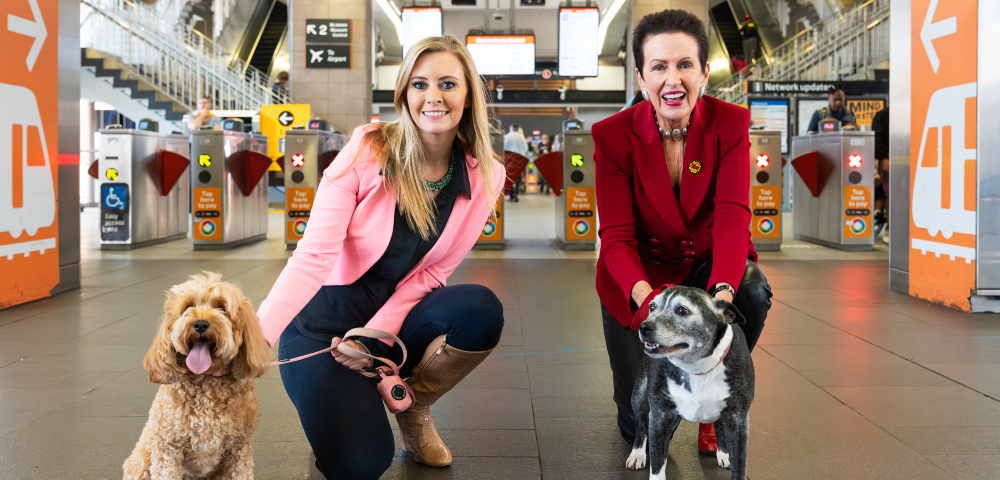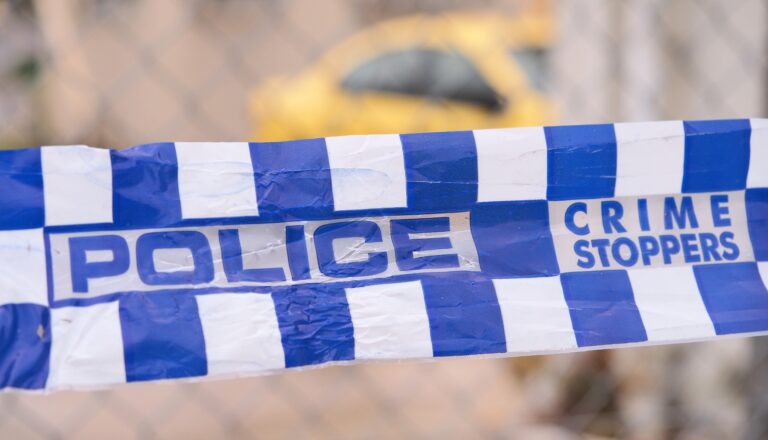

By GRACE JOHNSON
A motion to allow pets on public transport received a unanimous vote of support last night at a City of Sydney Council meeting. As per the motion, the Lord Mayor Clover Moore will write to the Minister for Transport, Jo Haylen, to ask for the urgent removal of current restrictions without legislative change, an otherwise lengthy process.
Australia has one of the highest rates of pet ownership in the world, with an estimated 30.4 million pets across the country, according to 2021 research by Animal Medicine Australia. Pet registration data confirm that there are 32,820 dogs and 26,815 cats living in households within the City of Sydney area.
While travelling with pets on public transport is a normal part of life in cities such as London, Paris, Berlin and San Francisco, Sydney is behind the times. Already in Melbourne, pets can travel free of charge on trains, trams and buses, provided they are in a suitable carrier or on a lead, and that larger breeds are muzzled.
Currently, pets are only allowed on light rail, bus and ferry services, and only if staff or the driver agrees and services aren’t nearing capacity.
Inner-city pet owners disadvantaged
In her notice of motion, Lord Mayor Clover Moore asserted that people with pets are treated as second-class citizens due to unnecessarily restrictive policies around pets on public transport.
Inner-city pet owners are at a particular disadvantage as they are less likely to own a car. This hinders the population’s access to veterinary care for their animal companions. Lack of public transport options also presents difficulties to elderly people and those with disabilities.
Emma Hurst MLC of the Animal Justice Party said, “when we have a companion animal, we need to be able to get them to a dog park and to the vet. It’s hugely problematic especially for older people and for people who want to take the environmentally friendly option of public transport.”
“Being able to travel with animal companions on the trains would get more cars off the road,” said Hurst.
Lifting of Restrictions: Will We See More Animal Adoptions?
The lifting of restrictions, in tandem with plans to make it easier for renters in NSW to own pets and reforms to strata laws which prevent owners’ corporations establishing blanket bans on pets, might also encourage more people to adopt animals, Hurst relayed.
“We’ve got so many shelters and pounds at capacity, and we’ve got an enormous euthanasia rate of happy and healthy animals,” said Hurst. “That needs to change.”
A representative from Animal Rights Activism Sydney shared this sentiment, echoing that “allowing companion animals on public transport in Sydney has the potential to reduce the number of animals that are abandoned and euthanised each year. It would also help vulnerable members of our community who need a safe way to travel with their animals.”
Shelters saw an influx in surrendered animals after the ‘puppy boom’ of the COVID-19 lockdowns. As workers make their way back to the office, they often feel that it is unfair to leave an animal at home all day.
Hurst said, “people that work long hours and don’t have a car have limited access and often choose not to own an animal.”
Creating An Animal Companion Friendly City
“We know that, for example, it would be great for people to take their companion animals to work. If they have an animal companion friendly workplace, and the laws change, that really opens up opportunities for more animals to be adopted.”
“It is so important that we change the system to be more animal companion friendly,” Hurst continued. “Animals are beloved in many families, and we’ve seen all the positive mental health benefits they provide to their human companions.”
A spokesperson for Transport Minister Jo Haylen said, “The Minister knows many passengers are pet owners and would benefit from taking their pets on public transport.”
“However, these benefits must be carefully weighed with the needs of passengers with disability and transport workers.”
“The Minister is currently seeking advice from Transport for NSW, advocates and stakeholders to ensure we get the balance right.”
Concerns About Hygiene and Safety
When asked about ensuring the safety and hygiene of other passengers on the train, especially in light of recent dog attacks, Hurst said “we have spoken to the local minister about changing the laws so that you cannot legally train a dog to be dangerous.”
Regarding an owner who does not clean up after their dog, there would need to be fines that would apply, at the transport system’s discretion.
“Any concerns that people have can be looked at in a trial.”
“If there’s a system working in Melbourne, there’s no reason why it wouldn’t work in Sydney.”









